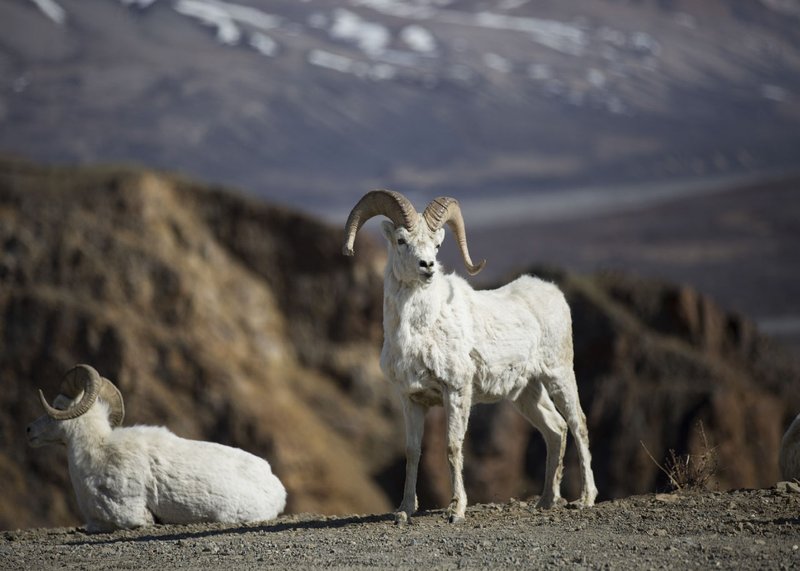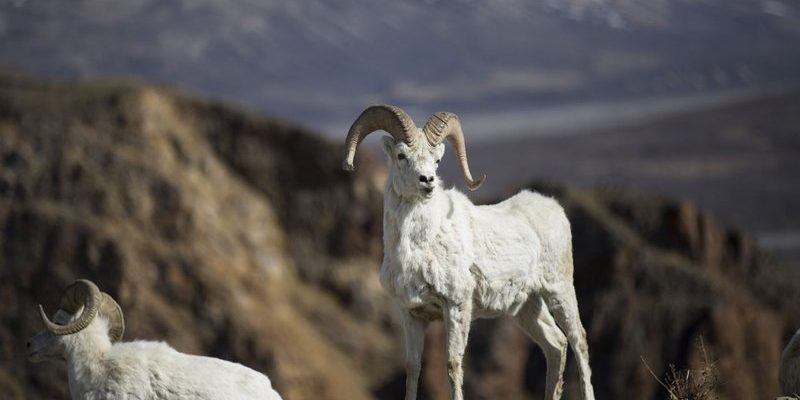
Picture this: you’re hiking in the beautiful, rocky landscapes of Alaska or the Yukon, spotting a Dall sheep grazing atop a cliff. They look so serene and peaceful, right? However, like any wild animal, they have their own behaviors and instincts that can surprise us. Understanding the Dall sheep’s nature is key to knowing if they could ever be a danger to humans. Let me explain what you need to know about these remarkable creatures and the potential risks involved if you get too close.
Understanding Dall Sheep Behavior
Dall sheep are not just charming faces in the mountains; they have complex social structures and behaviors. Living in herds, these sheep are often seen moving through their alpine habitats with agility and grace. Their sharp eyesight and keen sense of smell help them detect predators from a distance.
Herd Dynamics play a big role in their behavior. Male Dall sheep, or rams, can be particularly aggressive during mating season. They engage in impressive head-butting contests to establish dominance and attract females. If you happen to stumble upon a group of rams during this time, it’s best to keep your distance. Their battles might seem like a scene from a nature documentary, but remember, they can be unpredictable and fiercely territorial.
You might be wondering if Dall sheep can actually harm humans. Here’s the thing: while they generally avoid human contact, they can react aggressively if they feel threatened or cornered. This is crucial to consider if you find yourself hiking in their territory.
When Dall Sheep Might Feel Threatened
Dall sheep are naturally skittish animals. They’re accustomed to the wild, where threats lurk around every corner. If they sense danger—be it from a human, a dog, or another animal—they can become defensive.
One scenario is when you accidentally get between a mother and her lamb. This is a classic no-no in the wild. Mothers are fiercely protective of their young, and a startled Dall sheep might charge or kick out in defense. It’s important to respect their space and observe from a distance. Keeping a respectful barrier can help ensure both your safety and the sheep’s.
Another situation that could trigger aggressive behavior is if a human approaches during mating season. Those rams are in the zone and may see you as a challenger. With their powerful horns, they can deliver a serious blow if they feel provoked. So, it’s smart to stay aware of seasonal patterns when exploring their habitats.
Recognizing Warning Signs
Understanding the signs that a Dall sheep is feeling threatened or cornered helps you avoid dangerous encounters. Their body language can be quite telling. Look for actions like:
- Head lowering: If you notice a sheep lowering its head and staring you down, it may be getting ready to charge.
- Stomping: This is a clear signal of irritation. They might stomp their feet as a warning to back off.
- Backing away: While some distance might indicate retreat, it can also be a clear signal to you to step back further.
Be sure to respect their space and recognize that these sheep are wild animals. They aren’t like the deer you might see in a park; they’re strong and capable of defending themselves. Keeping a safe distance helps maintain peace in their world and yours.
How to Safely Observe Dall Sheep
If you’re eager to see Dall sheep in their natural habitat without putting yourself at risk, there are some practical tips to follow. First, always keep your distance. A good rule of thumb is to stay at least 100 yards away. This distance allows you to enjoy their beauty without making them feel threatened.
Next, invest in a good pair of binoculars. Not only can they help you observe these incredible animals closely, but they can also keep you safe. This way, you can enjoy the view without getting too cozy.
Finally, consider joining a guided tour. Experienced guides know the best practices for observing wildlife, including Dall sheep. They’ll help you navigate encounters safely and responsibly, ensuring that you enjoy your wildlife experience to the fullest.
Comparing Dall Sheep to Other Wildlife
When it comes to potential danger to humans, it’s helpful to compare Dall sheep with other wildlife. For example, while bears are often more aggressive and can pose a significant risk, Dall sheep typically prefer to flee rather than fight. This doesn’t mean they can’t be dangerous, especially in specific scenarios, but their first instinct is to escape.
On the other hand, animals like bison or elk can be more unpredictable in terms of aggression. Dall sheep are unique in their shy nature, but when their territory is encroached upon, their calm demeanor can quickly shift to defensiveness, much like a startled cat.
Understanding these differences can help you appreciate the unique behavior of Dall sheep while also recognizing the potential dangers involved with various wildlife.
Environmental Factors Affecting Dall Sheep Behavior
The environment where Dall sheep live also plays a significant role in their behavior. Mountainous terrains come with their own challenges, like steep cliffs and unpredictable weather. The rugged landscape allows Dall sheep to escape predators but can also create some tense situations for hikers and wildlife enthusiasts.
Moreover, seasonal changes can affect their behavior. In the winter months, food becomes scarce, making them more vulnerable and potentially increasing their defensiveness. During these times, they may gather in larger groups, which changes the dynamics of their behavior and increases the chances of confrontations with humans.
Staying informed about the environmental context helps you navigate your adventures more wisely. Remember, every wildlife encounter is unique, shaped by the animals’ natural instincts and the surrounding environment.
Ultimately, while Dall sheep can be a potential danger to humans in certain situations, understanding their behavior and respecting their space goes a long way in ensuring safety. Engaging with wildlife can be one of the most rewarding experiences, but it’s important to approach with knowledge and caution.
By keeping your distance, reading their body language, and being aware of your surroundings, you can enjoy the majestic beauty of Dall sheep without putting yourself at risk. So, the next time you find yourself in their spectacular habitat, take a moment to appreciate these stunning animals from afar, and remember: it’s all about coexisting in harmony with nature.

